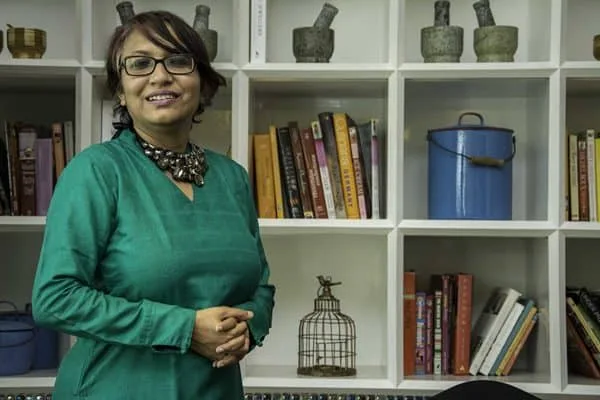Susmita Das Gupta, Founder of Smart iDeAS firmly believes in the No Sir No Madam culture to bring much-needed change in India. As a serial entrepreneur, she started four unique businesses during the last ten years. Smart iDeAS, her first start-up venture, provides brand consulting and digital media marketing solutions.
She grew up in a family where calling Sir or Madam was not part of tradition or upbringing. In her school they were taught to address their women teachers as ‘Aunty’. Interestingly at her MBA school, their Dean insisted that he be called Uncle and never Sir!
Also having been raised in Bengali traditions Susmita has seen that unknown people on road as well as in offices are addressed as ‘Dada’ or ‘Didi’, which though she doesn’t favor but thinks is much better than calling someone Sir/Madam.
Throughout her 22+ years of career, professionally she does not remember calling anyone Sir or Madam, but depending on the culture or country she has used either the first name or the last name with Mr. or Ms. added before that. At Smart iDeAS she has continued that culture and encourages all her employees to call her and each other by their first names.
However, she also had an experience where one of her employees was very uncomfortable calling her by her name; she let him call her Ma’am so as not to make her employee feel uneasy around her.
“Cultural differences affect ideologies. And the belief systems play a major role in calling someone Sir/Madam”, Susmita comments. She explains that In South India regarding unknown people on road as Sir/Madam is a very common practice. This does not happen due to any slave mentality but as a way to address people on the road who are not known to each other, exactly the way in Bengal people call ‘Dada’ or ‘Didi’.
According to her a law passed against Sir/Madam salutation will not only be unnecessary as it is ingrained in the minds of the Indians — particularly people coming from rural India and smaller towns will not be able to adapt to this idea immediately. It will be rather infringing on personal rights to choose.
However, she also believes that calling someone Sir/Madam also sometimes comes from a position of feeling inferior on the part of the caller as compared to whoever is being addressed Sir/Madam. Such feeling of inferiority can only be eradicated by proper education, schooling and bigger exposure to outside world.
The same culture is also applicable when it comes to addressing government officials. Most of these officials preferred to be called Sir/Madam just to feel superior. This is where Susmita thinks that major restructuring of practices are required.
Susmita considers knowledge as a crucial ingredient for building liberal mindsets which comes from a positive environment at home, offices and everywhere else. People need to understand and taught that there are alternate ways to show respect and addressing someone Sir/Madam is not one of them. She recommends that people be addressed by their name (if they know each other well like a CEO and his long term client) or by their last name.
However, Susmita remarks people ought to remember that regarding each other by first names does not entitle one to cross any professional or social boundaries. Calling your boss by her name does not make her your friend. Respect must be given to every individual and to every kind of work performed.
On the No Sir No Madam initiative, Susmita thinks this to be an innovative campaign. She proposes that the cause should reach out to rural and urban areas particularly to schools and homes and organize workshops for people in tier two and tier three cities. She suggests that people should learn that respect is not attached to these words but to our individual behavior.
In conclusion, Susmita states that “We should show respect by actions and not just by words.” Susmita asserts that we should understand the cultural differences and nuances in this multicultural nation in order to break stereotypes.







Add comment